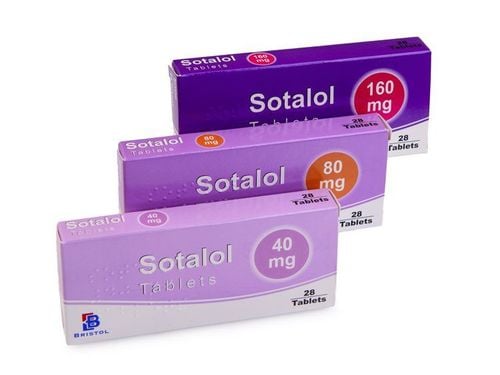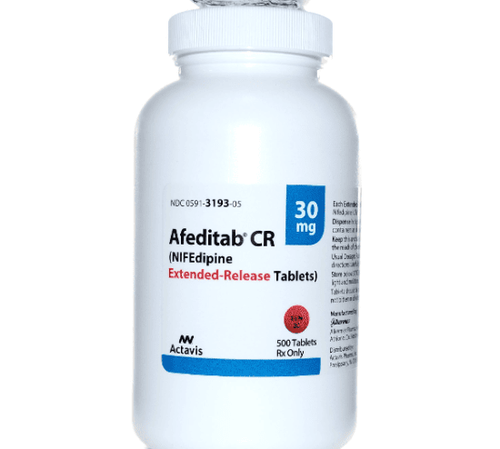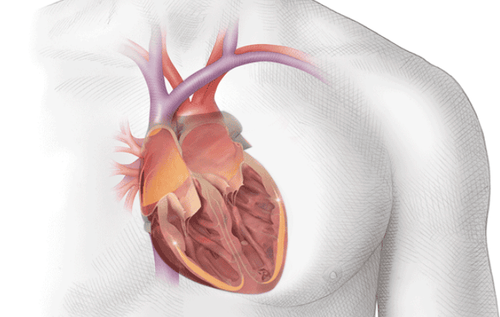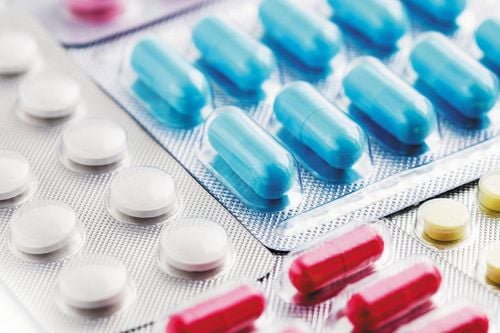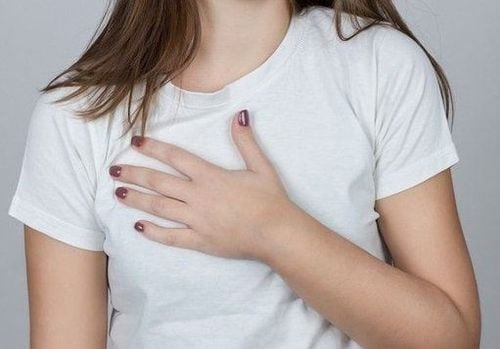This is an automatically translated article.
Posted by Specialist I Tran Ngoc Thuy Hang - Resuscitation - Emergency Doctor - Emergency Resuscitation Department - Vinmec Central Park International General Hospital.
What is supraventricular tachycardia? This is a condition in which the heart suddenly beats abnormally fast. The condition is usually not dangerous, but patients need to be hospitalized for treatment if symptoms persist.
1. Causes of supraventricular tachycardia (NNTT)
Supraventricular tachycardia occurs when there is an abnormality in the electrical conduction of the heart, causing the heart rate to suddenly increase rapidly, then it may suddenly slow down on its own.
Normal heart rate is between 60 and 100 beats/min. But when there is supraventricular tachycardia, the heart rate will suddenly increase above 100 beats/minute. This condition can happen at any time, including when you are resting or working.
2. Symptoms of supraventricular tachycardia
When there is a supraventricular tachycardia, the patient will often suddenly feel palpitation, the heart beats rapidly. Supraventricular tachycardia has the following characteristics:
Lasts for a few minutes and then resolves on its own, but can sometimes last several hours. Attacks can happen several times a day or only a few times a year. May be triggered after the patient does heavy work, drinks coffee, alcohol or uses stimulants. However, these factors have not been well established as a risk factor for the onset of supraventricular tachycardia. This condition can occur at any age, but the first attack usually occurs in children or young adults between the ages of 25 and 40. Usually there are no additional symptoms. However, in some cases, the patient may have the following symptoms:
Chest pain Feeling short of breath, headache or dizziness Feeling tired, weak. In infants and young children, signs and symptoms can be more difficult to identify. The baby may have signs such as unusual sweating, poor appetite, pale skin, and an infant with a heart rate above 200 beats/min.
3. Things you should do when you have supraventricular tachycardia
If the supraventricular tachycardia lasts only a few minutes and then goes away on its own and doesn't bother you much, no treatment is needed. You can make lifestyle changes to reduce your risk of supraventricular tachycardia, including:
Limit or stop drinking coffee and alcohol Quit smoking Get enough rest If you're still concerned you can see a doctor. Your doctor can advise you on some additional methods or prescribe medication to help reduce the risk of supraventricular tachycardia.

Ngừng sử dụng cà phê và rượu là điều bạn nên làm khi có nhịp nhanh trên thất
4. Treatment of supraventricular tachycardia in hospital
After the examination, the doctor will probably conduct an electrocardiogram for you. If a supraventricular tachycardia episode is identified, the doctor can handle it with the following measures:
Implement some techniques to control supraventricular tachycardia Use intravenous drugs to control supraventricular tachycardia. Use an electric shock machine to change the rhythm of the heart. Catheter ablation by inserting a small tube into a blood vessel and into the heart. After determining the site of the abnormal conduction, the doctor will perform ablation to remove this abnormal conduction bundle. This is the definitive treatment in most cases of supraventricular tachycardia. In summary, supraventricular tachycardia is very rarely life-threatening. However, you should still be hospitalized in case supraventricular tachycardia persists or is accompanied by symptoms of chest pain, shortness of breath, or dizziness.
Currently, Cardiovascular Center - Vinmec International General Hospital is one of the leading centers in the country for examination, diagnosis, screening and treatment of cardiovascular diseases. Vinmec not only has the convergence of a team of experienced and reputable leading experts in the field of surgical treatment, internal medicine, interventional cardiac catheterization, but also has a system of modern equipment, on par with The most prestigious hospitals in the world such as: MRI 3 Tesla (Siemens), CT 640 (Toshiba), high-end endoscopy equipment EVIS EXERA III (Olympus Japan), high anesthesia system Avace level, Hybrid operating room according to international standards... Especially, with the space designed according to 5-star hotel standards, Vinmec ensures to bring patients the most comfortable, friendly and reassuring comfort. .
Please dial HOTLINE for more information or register for an appointment HERE. Download MyVinmec app to make appointments faster and to manage your bookings easily.




